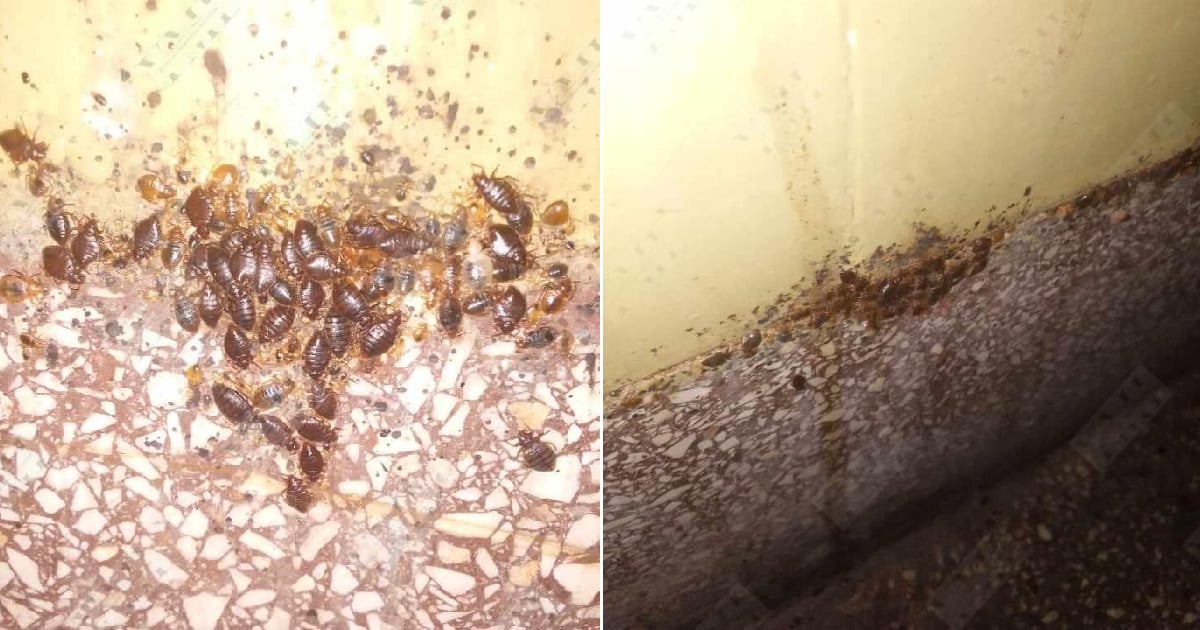An alarming infestation of bedbugs has been plaguing patients and healthcare staff at the Gustavo Machín Psychiatric Hospital, known as "Jagüa," in Santiago de Cuba for months. "They have been trying to eliminate it for five months without finding any solution to this infestation," reported the families of patients admitted to the medical center, according to a report by journalist Yosmany Mayeta, who published photos showing the severity of the epidemiological problem at the hospital.
"Many hospital and educational facilities across the country are suffering from this epidemic, and the regime is not allocating pesticides for its complete eradication," Mayeta warned in a Facebook post on Tuesday. The reporter called on the authorities and the Santiago de Cuba Provincial Health Directorate to "address this issue that affects everyone who seeks emergency care or is admitted to hospitals in the city."
Just a few days ago, a severe bedbug outbreak was reported at an elderly care home in Manzanillo, in the province of Granma, where 165 elderly residents live. The complaint was made by the families of the residents, who have been suffering from the consequences of this infestation for months. Despite reporting the plague to all municipal and provincial institutions, including Public Health, the Government, the Party, and the Hygiene and Epidemiology Directorate, the authorities have taken no effective action to resolve the issue.
About three months ago, a bedbug infestation kept residents of a neighborhood in the provincial capital of Santiago de Cuba on alert, who complained about the government's lack of attention to eradicating the insects.
Over the past year, bedbug outbreaks have been reported in schools and healthcare centers in the eastern part of the country, especially in the provinces of Santiago de Cuba, Granma, and Holguín.
The bedbug, or Cimex lectularius, as it is commonly known, is a hemipteran insect from the family Cimicidae that feeds on the blood of humans and other warm-blooded animals. These small insects are brown, flattened, and difficult to detect, as they easily transport on personal items such as clothing and luggage. Once they find a place to nest, they reproduce at an alarmingly rapid rate, facilitating their spread. They typically inhabit mattresses, sofas, and other furniture.
Bedbugs usually bite at night while people are sleeping. According to medical literature, the symptoms of their bites vary from person to person and can include skin irritation, redness, and an intense itching sensation. They can also trigger allergic reactions, such as asthma exacerbation, hives, and other significant inflammatory responses, often associated with red welts that cause itching. These symptoms usually appear the day after the bite.
Understanding the Bedbug Infestation in Santiago de Cuba
This section addresses common questions and concerns about the ongoing bedbug infestation affecting Santiago de Cuba, particularly in healthcare facilities.
What measures are being taken to control the bedbug infestation at Gustavo Machín Psychiatric Hospital?
Despite efforts over the past five months, no effective solution has been found to eliminate the bedbugs at the hospital. Families and reporters are calling on authorities for more decisive action.
Have other facilities in Cuba reported similar bedbug problems?
Yes, numerous hospitals and educational centers across Cuba are experiencing similar infestations, and there have been reports of outbreaks in elderly care homes and neighborhoods.
What are the health implications of bedbug bites?
Bedbug bites can cause skin irritation, redness, and intense itching. They may also lead to allergic reactions such as asthma exacerbation, hives, and other inflammatory responses.
